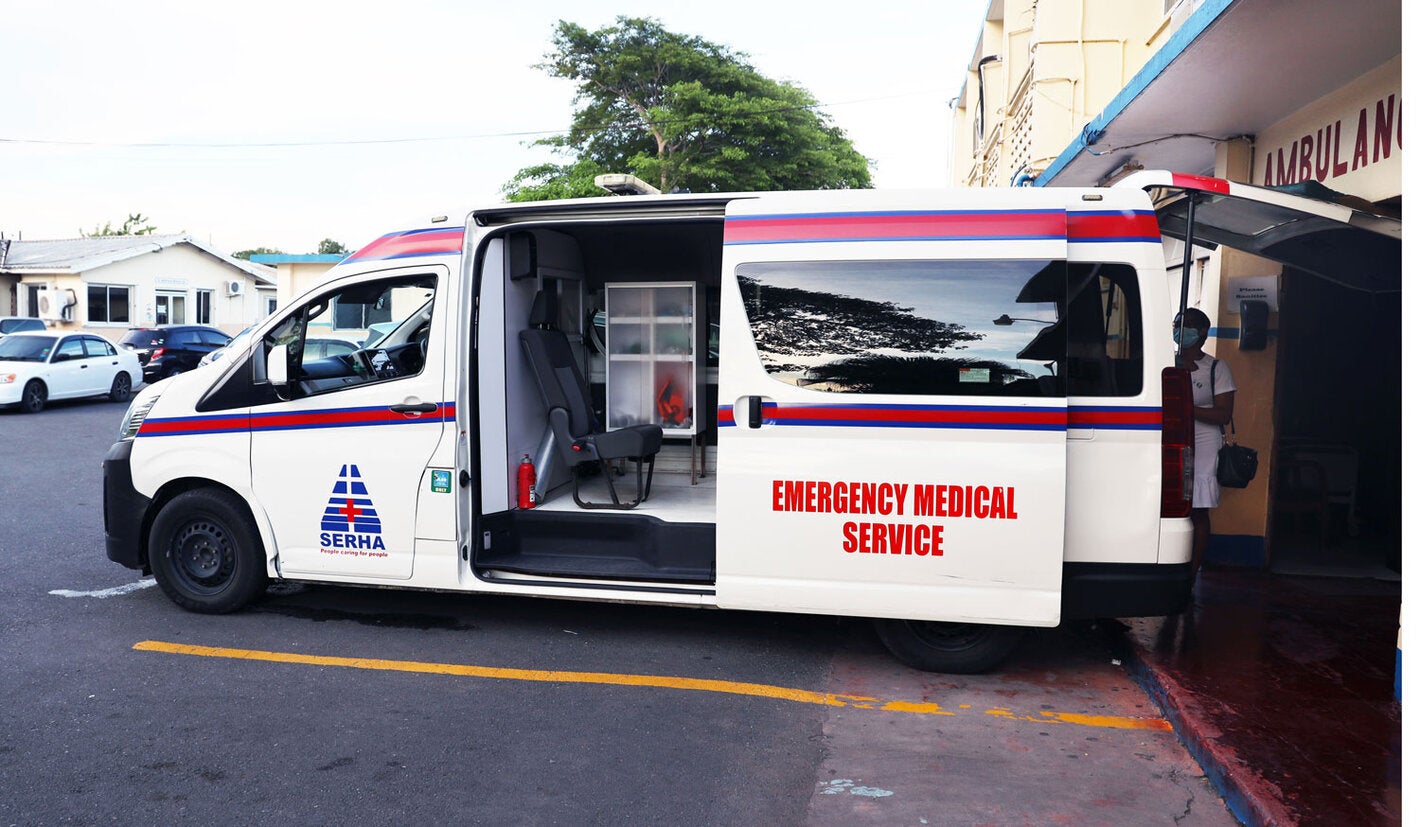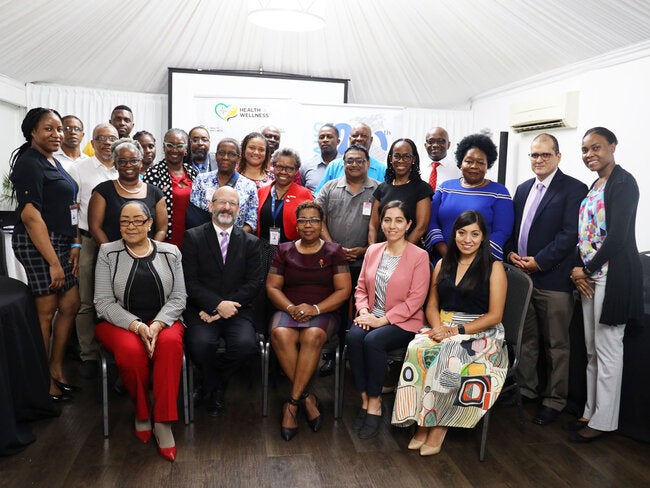
Kingston, Jamaica, September 13, 2023 (PAHO/WHO) - Every year, thousands of Jamaicans who are seriously ill and injured, seek care. Whether it’s a pregnant woman suffering from preeclampsia, a man who has suffered a stroke or heart attack, or a teenager who has been in a terrible accident, they invariably turn up at one place to seek help: the hospital.
Hospitals are some of the most frequented facilities based on the nature of the services they provide, and they are often overwhelmed with caring for and managing emergencies to reduce preventable mortality. Against this background, the Ministry of Health and Wellness requested support from the Pan American Health Organization (PAHO), which facilitated an assessment through a survey and a two-day consensus meeting as part of an Emergency and Critical Care Assessment System.
The Emergency and Critical Care Systems form an integral part of the broader implementation plan for the "Safe Systems Approach for Safer Roads in Jamaica," which sets the island on a path to achieve the goals proposed for the second Decade of Action for Road Safety 2021–2030. It also comprises all other types of injuries and critical illnesses requiring urgent medical attention and establishes the care all seriously ill patients should receive in every hospital.
The assessment was conducted by multiple stakeholders and co-facilitated by a team of PAHO technical advisors and consultants who, in addition to meeting stakeholders involved in the provision of emergency and critical care, also met with the Minister of Health and Wellness, Dr. the Honourable Christopher Tufton, and other health ministry officials.
During this meeting, the minister underscored the importance of behavioural change, public education, adherence to standard operating procedures, and obeying road traffic laws in lessening the significant loss of lives on the nation’s roads, which places an undue burden on health workers and the healthcare system.
The assessment was carried out in alignment with the World Health Organization's (WHO) Emergency Care System Framework and informed the strategic planning process, which began with a stakeholder survey designed to help policymakers and planners assess the national emergency care system, identify gaps, and set priorities for system improvement and development.




